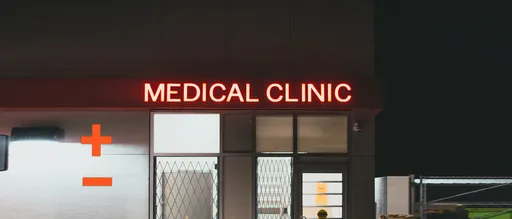“As in Health, So in Crime – prevention is better than cure.” ~ Ash Sarkar

Prevention as the Key to Health and Longevity
With the increasing time and financial pressures in today’s economy, many high-achieving professionals are reluctant to think long-term about their health. They often prioritize “putting out fires”, and sadly, this often extends to their health.
On a societal level, the same principle often applies. Insurance companies prioritize care that offers bandaid solutions once illnesses have already progressed and don’t emphasize the process of how to avoid infection in the first place.
This situation leaves many individuals with chronic, low-grade health concerns that tend to compound over time into blown diagnosed illnesses.
The reality, however, is that many chronic illnesses, from depression to obesity, heart disease, arthritis, and dementia, are largely preventable.
The cellular and neurological processes that promote these illnesses take years to develop. With early detection through labs and lifestyle changes, we can often stop the disease in its tracks.
Preventative Medicine Physicians are Medical, Naturopathic, Osteopathic, and Chiropractic Functional Doctors with advanced medical training and have also studied Functional Medicine. They’ve either learned a root cause functional approach in Medical school or a Continuing Education program like The Institute of Functional Medicine.
Preventative medicine takes into account all systems of the body through subjective patient concerns and also through testing of different means.
Because health is a continuum between optimal health and disease, a preventative doctor can pick up early warning signs through patient reports of symptoms and sensitive testing and labs, to stop the disease in its tracks before it develops into a whole-blown illness.
An example of this would be dementia. Through the work of Dr. Dale Bredesen at the Apollo Health Institute, we are learning about the complex drivers of Alzheimer’s and the disease process that develops over the years before diagnosing Alzheimer’s.
One potential mechanism through which Alzheimer’s develops is neural/brain inflammation.
A physician with a preventative approach and training in this area could pick this mechanism up through lab testing. They would then prescribe various anti-inflammatory supplements and lifestyle and dietary modifications for the patient and their care team to implement to prevent disease development.
Chronic preventable illnesses are a significant burden on the medical system and economy. When including the loss in productivity among workers, the costs are estimated at 3.7 trillion dollars in the United States alone.
The good news is that with more physicians taking on a holistic approach, we can not only prevent disease but optimize our health and well-being, to have more time for what matters most to us.
In this article, I’ll go over the 3 Aspects of the process of a Preventative Medicine Physician:
- Intake
- Testing
- Recommendations.
The 3 Key Aspects of Preventative Medical Care
1. Intake
Compared with conventional care, one of the essential parts of working with a Preventative Medicine Physician is Intake, whereby most will have appointments of at least an hour and sometimes an hour and a half initially.
This is so that they can take the time to get to know your concerns personally. As accurate as modern testing can be, a patient’s subjective symptoms often give us some good clues as to what may be happening under the surface.
Not only that, but the ultimate goal of Preventative Medicine is to get your body into a more balanced state and get you feeling better, so you have more time for your purposes and enjoyment in life.
An intake will consider your health history, goals, symptoms, medications, supplements, and psychosocial history. It will also consider stress and mental health contributors, as those often play a part in disease development.
At the heart of preventative medicine, they get a good sense of where a patient is, the details of their health history, and presenting concerns and health goals.
The patient-practitioner relationship also plays an essential role in Preventative Medicine Physicians taking the time to listen and work through your problems.
In preventative medicine, problems essential that a patient is in the right frame of mind to implement recommendations, as it’s usually not focused on quick fixes or band-aid solutions.
The process is generally more like a health journey, where we always aim for an upward trend over time, and time frames can range from a couple of days to a couple of years, depending on the concern.
2. Testing
Another essential piece in preventative medicine is testing.
When we get objective measures through blood, saliva, urine, stool samples, etc., we get more clarity around the underlying mechanisms of people’s health concerns, which informs our treatment plans.
Suppose a patient comes in with a concern of anxiety, for example. Through their blood and saliva lab work, we learn that they have low vitamin D and low ferritin, as well as genetic predispositions towards an increased stress response through adrenaline.
In that case, those are all factors we can modify.
In the above example, we suggest supplementing vitamin D, heme iron, and Rhodiola and theanine for the increased stress response.
In the example of anxiety, another patient could come in with the same concern, however, with a different root cause – they had an overactive thyroid gland. We would ensure that was being addressed.
Preventative medicine is individualized and nuanced, whereby practitioners consider a combination of high-yield objective data and subjective patient concerns. That way, they have the best chance of tailoring an effective plan to the patient and preventing further disease progression.
3. Recommendations
Along with taking a thorough health history and looking at lab results, preventative medicine physicians significantly emphasize health protocols.
These include but are not limited to the following:
- Dietary and supplement recommendations
- Movement and stress management exercises
- Sleep optimization practices
- Therapies (such as hydrotherapy or acupuncture)
- Referral to other specialized clinicians
The types of recommendations will depend on the specialty of the practitioner and their particular profession.
Still, the approach generally shares the perspective of addressing the root cause and patient involvement in the process.
Psychological factors may also be at play in the case of the anxiety above.
It would be up to the patient and clinician to assess whether that was the case and whether a referral to a mental health practitioner might be appropriate. Collaboration with other healthcare practitioners is often part of the process.
All in all, recommendations will vary. However, they are likely to be less invasive and more holistic. They almost always involve a certain amount of investment and initiative from both the clinician and the patient.
The Future of Medicine Lies in the Early Detection of Chronic, Preventable Illnesses
In the last century, medicine has made incredible leaps in treating and eradicating many illnesses, such as Polio and Smallpox.
When it comes to Chronic Preventable Illnesses, however, like Diabetes, Depression, Heart Disease, and countless mental health conditions, however, our Medical System has not been nearly as successful.
With advances in science (and many scientists and clinicians realizing that a more holistic and preventative approach is optimal to use in conjunction with emergency medicine), we now have the tools available to detect issues before they develop into whole-blown illnesses.
There’s so much we can do to minimize symptoms, prevent illness, and ensure that we’re on an excellent track to living a long and healthy life.
Over 80% of our long-term health depends not on genetic factors but lifestyle, which is fantastic news for most of us!
For further reading, view the following articles on our learning center:
- Nine Considerations When Choosing a Personalized Medical Program
- Best Providers of Health Optimization Programs
- Who Should I See If Alzheimer’s Runs in My Family?
You have what it takes inside you to make a definite choice that will change the future trajectory of your health.
Our team at Tiger Medical has the experience, clinical skills, and coaching acumen to help you get your health and energy back.
To talk to one of our professionals, click here to schedule your call!



 7min to read
7min to read

 10min to read
10min to read